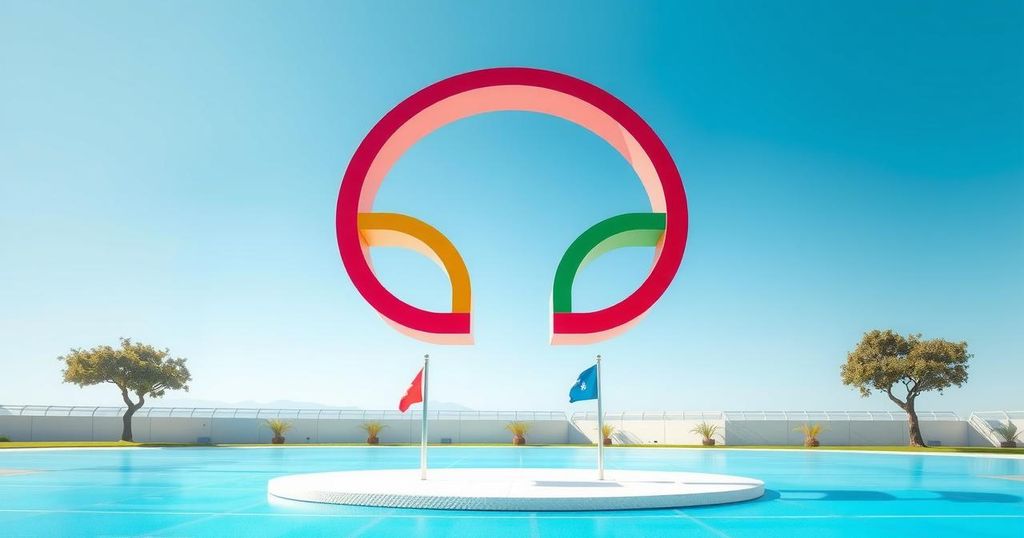World news
AFRICA, ASIA, AUBURN UNIVERSITY, BACH, COMMITTEE, COVENTRY, ELECTION, EUROPE, FEISAL AL HUSSEIN, GOVERNMENT, GREECE, INTERNATIONAL, INTERNATIONAL OLYMPIC COMMITTEE, IOC, JOHAN ELIASCH, JORDAN, LEADERSHIP, NORTH AMERICA, PHILIPPINES, PRESIDENTIAL ELECTIONS, SEBASTIAN COE, U. S, UNITED STATES, WHITE HOUSE, ZIMBABWE
Marcus Chen
0 Comments
Kirsty Coventry Elected as First Female and African IOC President
Kirsty Coventry has been elected as the first female and African president of the IOC, winning decisively in the first round against six candidates. She will lead for an eight-year term, facing key challenges like the 2028 Los Angeles Olympics and determining the 2036 host city. Coventry’s victory is a significant milestone for female leadership in sports.
Kirsty Coventry has been elected as the president of the International Olympic Committee (IOC), making history as the first woman and the first African to hold this prestigious position. The election took place in Costa Navarino, Greece, where Coventry won a decisive victory against six other candidates, gaining the necessary majority in the first round with 49 votes from the 97 IOC members. At just 41 years of age, she will serve an eight-year term until 2033, bringing youthful energy to a historically conservative institution.
Prior to her election, Coventry addressed the importance of effective communication when asked about her upcoming engagement with U.S. President Donald Trump regarding the 2028 Los Angeles Olympics. She stated, “I have been dealing with let’s say difficult… men in high positions since I was 20 years old. What I have learned is that communication will be key.” Her election was endorsed by the outgoing president, Thomas Bach, who chose not to vote, emphasizing Coventry’s received support and confidence as the IOC’s new leader.
The election process was highly competitive, with candidates including notable figures from various sports, such as Sebastian Coe and Johan Eliasch. Coventry’s victory marked a significant achievement for her supporters and the Olympic movement. In her acceptance speech, she conveyed her commitment to fulfilling the expectations of the IOC members by stating, “I will make all of you very, very proud and hopefully extremely confident in the decision you have taken. Now we have got some work together.”
Coventry will officially assume her role on June 23, Olympic Day, succeeding Thomas Bach, who has completed his maximum tenure. Her immediate tasks include addressing various political and sporting challenges while also determining host cities for future Summer Games, particularly the 2036 Olympics, which may be held in India or the Middle East.
Coventry previously served as the vice president of the IOC and has advocated for continuity in its policies, despite having limited new proposals compared to her competitors, who suggested detailed plans to enhance the Olympic experience for athletes. The outcome of the election also reflects a growing recognition of female leadership in international sports organizations, a commitment championed by Bach.
Throughout her career, Coventry has made an undeniable mark in the sporting world, highlighted by her two gold medals in swimming events at the Olympics in 2004 and 2008. Her election win is attributed not only to her past achievements but also to her enduring dedication to representing athletes’ interests within the IOC. Her journey includes overcoming significant hurdles within the Olympic framework, notably achieving a position among the elected athlete representatives.
The election saw votes cast by a coveted group of IOC members, encompassing diverse backgrounds, including royalty and business luminaries. The event underscored the intricate dynamics of the IOC’s electoral process, which is often influenced more by personal relationships and alliances than by formal campaigning. Coventry took a moment to reflect on her impact on historic firsts, poignantly acknowledging Anita DeFrantz, an influential figure in IOC history, who expressed her support despite health challenges.
Kirsty Coventry’s election as IOC president marks a historic moment for women’s representation in sports leadership. Her victory not only signifies a progressive shift within the international sports community but also brings forth a commitment to addressing both political and sports-related issues. As she prepares to lead the Olympic movement, her previous experiences and relationships within the IOC will serve her well in navigating upcoming challenges and opportunities.
Original Source: time.com




Post Comment